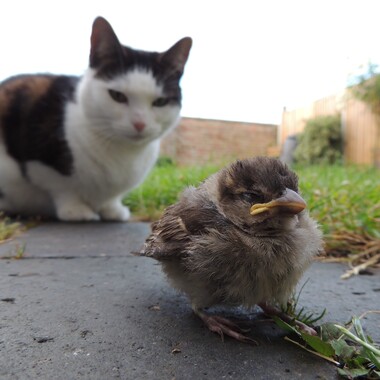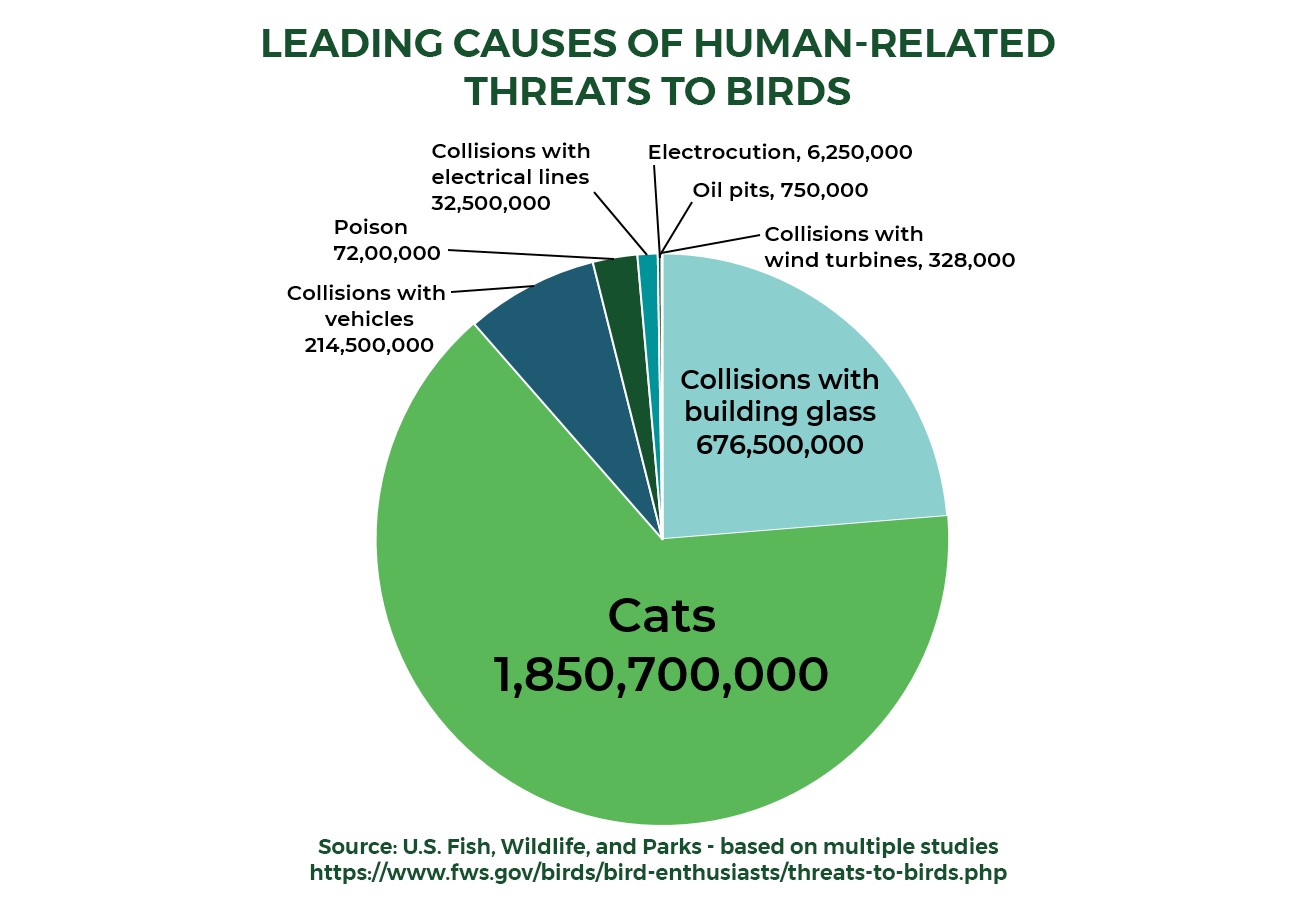
Each year, domestic cats kill approximately 2.4 billion birds in the U.S. Photo: Ivan Radic/CC BY 2.0
Keep Cats Indoors
Domestic cats make wonderful companions and pets, but when allowed to roam outside, they are the greatest human-caused source of mortality to birds.
Cats now function as introduced predators in many different habitats across the world. When outside, cats are invasive species that kill birds, reptiles, and other wildlife. Because most cats—whether feral or owned by humans—receive food from people, they also exist in much higher concentrations than wild felines do. But despite being fed, they kill wild birds and other animals by instinct.
There are now over 100 million free-roaming cats in the United States; they kill approximately 2.4 billion birds every year in the U.S. alone, making them the single greatest source of human-caused mortality for birds.
Free-roaming cats also spread diseases such as Rabies, Toxoplasmosis, and Feline Leukemia Virus, and face many more threats like vehicles and predators. Living outdoors shortens a cat’s lifespan to just 2-5 years, whereas indoor cats can live to be 17 and beyond.
The easiest way you can help prevent needless bird deaths and keep you and your pet safe is by keeping your cat indoors.
 "}" data-trix-content-type="undefined" class="attachment attachment--content">
"}" data-trix-content-type="undefined" class="attachment attachment--content">Actions You Can Take to Protect Wild Birds from Cats
Ask your local elected officials to support keeping pets, wildlife, and people safe using American Bird Conservancy’s tool:
Take the pledge to keep your cats safely contained through American Bird Conservancy’s website.
To Learn More
Visit American Bird Conservancy’s Cats Indoors page.



